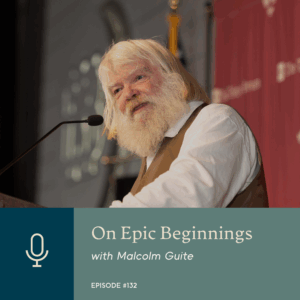The issue of the Bush Administration's enhanced interrogation techniques involve several inter-related questions.
There is, first of all, the matter of morality. Critics of enhanced interrogation techniques have taken to saying that Americans don't torture, period — meaning in this instance that we do not engage in coercive interrogation techniques ranging from sleep deprivation to prolonged loud noise and/or bright lights to waterboarding. Anyone who holds the opposite view is a moral cretin and guilty of “arrant inhumanity.” Or so the argument goes.
But this posture begins to come apart under examination. For one thing, the issue of “torture” itself needs to be put in a moral context and on a moral continuum. Waterboarding is a very nasty technique for sure — but it is considerably different (particularly in the manner administered by the CIA) than, say, mutilation with electric drills, rape, splitting knees, or forcing a terrorist to watch his children suffer and die in order to try to elicit information from him. Waterboarding is a technique that has been routinely used in the training of some U.S. military personnel — and which the journalist Christopher Hitchens endured. I certainly wouldn't want to undergo waterboarding — but while a very harsh technique, it is one that was applied in part because it would do far less damage to a person than other techniques. It is also surely relevant that waterboarding was not used randomly and promiscuously, but rather on three known terrorists. And of the thousands of unlawful combatants captured by the U.S., fewer than 100 were detained and questioned in the CIA program, according to Michael Hayden, President Bush's last CIA director, and former Attorney General Michael Mukasey — and of those, fewer than one-third were subjected to any of the techniques discussed in the memos on enhanced interrogation.
Morality also involves balancing ends and means. It is therefore relevant to take into account the possible benefits from the act of coercive interrogation techniques. Democratic Senator Charles Schumer, during a 2004 hearing on the subject of torture, put it this way. “There are times when we all get into high dudgeon” on this matter, Schumer said, but that we “ought to be reasonable about this.” He then added this:
I think there are probably very few people in this [Congressional hearing] room or in America who would say that torture should never, ever be used, particularly if thousands of lives are at stake. Take the hypothetical: if we knew that there was a nuclear bomb hidden in an American city and we believe that some kind of torture, fairly severe maybe, would give us a chance of finding that bomb before it went off, my guess is most Americans and most Senators, maybe all, would do what you have to do. So it's easy to sit back in the armchair and say that torture can never be used. But when you're in the fox hole, it's a very different deal. And I respect, I think we all respect the fact that the President's in the fox-hole every day. So he can hardly be blamed for asking you, or his White House counsel or the Department of Defense, to figure out when it comes to torture, what the law allows and when the law allows it, and what there is permission to do.
Senator Schumer noted, “We certainly don't want torture to be used willy-nilly… But we also don't want the situation like I mentioned in Chicago to preclude it.”
Apropos of Schumer's comments, critics of enhanced interrogation techniques need to wrestle with a set of questions they like to avoid: if you knew using waterboarding against a known terrorist may well elicit information that would stop a massive attack on an American city, would you still insist it never be used? Do you oppose the use of waterboarding if it would save a thousand innocent lives? Ten thousand? A hundred thousand? What exactly is the point, if any, at which you believe waterboarding might be justified? I simply don't accept that those who answer “never” are taking a morally superior stand to those who answer “sometimes, in extremely rare circumstances and in very limited cases.”
Let's consider the more common cases that don't involve a “ticking time bomb scenario.” How might you react if you found yourself in government in the immediate aftermath of the attacks on 9/11, in which you knew al Qaeda was responsible for the strike and knew it was intent on doing far more damage to America. You captured a high-value terrorist who, if you elicit information from him, might well provide you with details that are essential to preventing a future attack and mass death. You are told enhanced interrogation techniques, if employed properly and under guidance, will work; and will probably save many thousands of innocent lives. In that case many people would, I think, (reluctantly) give the green light to coercive techniques — which is exactly what Congress, including Democratic Members of Congress, did.
On the substantive level, there is the question of the efficacy of enhanced interrogation techniques. There is an intense debate surrounding this matter, but we can certainly say that respected members of the intelligence world insist that innocent Americans are today alive because we employed a set of coercive interrogation techniques. According to Hayden and Mukasey, “As late as 2006, fully half of the government's knowledge about the structure and activities of Al Qaeda came from those interrogations.” Former CIA Director George Tenet said, “I know that this program has saved lives. I know we've disrupted plots. I know this program alone is worth more than [what] the FBI, the [CIA], and the National Security Agency put together have been able to tell us.” And former National Intelligence Director Mike McConnell has said, “We have people walking around in this country that are alive today because this process happened.”
Stuart Taylor, the politically moderate and intellectually honest columnist for National Journal, put it this way:
The fashionable assumption that coercive interrogation (up to and including torture) never saved a single life makes it easy to resolve what otherwise would be an agonizing moral quandary. The same assumption makes it even easier for congressional Democrats, human-rights activists, and George W. Bush-hating avengers to call for prosecuting and imprisoning the former president and his entire national security team, including their lawyers. . . . But there is a body of evidence suggesting that brutal interrogation methods may indeed have saved lives, perhaps a great many lives — and that renouncing those methods may someday end up costing many, many more.
It seems unlikely that asking a jihadist his surname, first name and rank, date of birth, army, regimental, personal or serial number, or failing this, equivalent information — which is what the Geneva Conventions say ought to apply to prisoners of war but not, historically, to unlawful enemy combatants — would elicit as much information as coercive interrogation techniques. Dennis Blair, Obama's national intelligence director, admitted to his staff that “high value information came from interrogations in
which those methods were used and provided a deeper understanding” of al Qaeda. (Once Blair's memo was revealed, he added this caveat: “There is no way of knowing whether the same information could have been obtained through other means.”) And thanks to Taylor, we know that in 2002 the current Attorney General, Eric Holder, said that terrorists are not “entitled to the protection of the Geneva Convention” and that we need to “find out what their future plans might be, where other cells are located.”
I am not one who believes that there is no cost to pursuing enhanced interrogation techniques. In debating policies, especially those that reach the president, there are costs and benefits to consider. So it's certainly possible that our employment of enhanced interrogation techniques was used as a recruitment tool for militant jihadists; if so, that needs to be weighed against the plots you break up and the innocent lives you save. Also, many members of the military oppose waterboarding because they feel it stains the reputation of America and endangers our own servicemen and women (though it's hard to accept the argument that al Qaeda would be less sadistic if we had not used coercive interrogation techniques; after all, they were beheading innocent people even before it was known the U.S. used water-boarding). These are not silly objections. Beyond that, most of us instinctively pull back from using harsh interrogation techniques and certainly torture. Given the double-obligation of morality and law, we should begin with the presumption that waterboarding shouldn't be utilized and then set a very high bar for anyone who would argue that it might be acceptable in very limited instances.
But that is, in fact, what seems to have occurred. And so I do not accept for a moment that the last eight years constitute a “dark chapter” in our history. Quite the opposite. Michael Gerson points out that our history is replete with actions — the firebombing of Dresden, dropping the atomic bomb on Hiroshima, and (I would add) Franklin Roosevelt's Executive Order 9066, which led to the internment of more than 100,000 Japanese Americans in World War II — which certainly raise more morally problematic issues than what the Bush Administration pursued.
There are of course serious-minded critics of enhanced interrogation techniques. But to pretend, as some critics do, that the morality of this issue is self-evident and that waterboarding and other coercive interrogation techniques are obviously unacceptable and something for which our nation should be ashamed is, in my judgment, not only wrong but irresponsible. When a nation is engaged in war, you hope to find in government sober people who are able to weigh competing moral goods and who take seriously their obligation to protect our nation. They may not get everything right at the time — hardly anyone does in the heat of the moment — but they should not have to face a lynch mob years after the fact (especially those in the lynch mob who blessed the activities at the time they were being used). The American public, one hopes, can see through all this. And as Nancy Pelosi might well discover, playing a role in inciting a mob can come at a cost.
–Peter Wehner is a senior fellow at the Ethics and Public Policy Center in Washington, D.C. He served in the Bush White House as director of the office of strategic initiatives.

